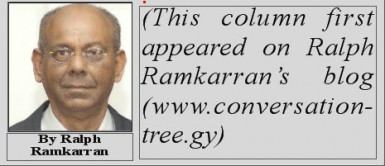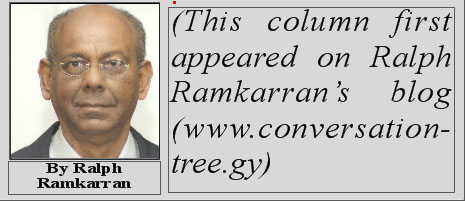The Clerk to the National Assembly has sought, in a letter to the press, to answer my article last Sunday in which I contended that the Speaker must convene the National Assembly now. My argument was that the National Assembly, when adjourned without a date being fixed, must sit on the next sitting day pursuant to Standing Order 8(1).
The word ‘convene’ may be causing some difficulty. The Speaker cannot actually ‘convene’ by fixing a date for the sitting. As the Clerk says, and as I pointed out last week, he has no power to do so. By virtue of Standing Order 8(1), the Speaker must instruct the Clerk to ‘convene’ a sitting of the National Assembly, that is to say, to administratively set up a sitting on the ‘next sitting day’ in accordance with Standing Order 8(1). The Speaker has no power to fix any other date other than the ‘next sitting day’.
The Clerk says: “When matters are not provided for in our Rules, we refer to practice and precedents.” But the matter is provided for in our rules, namely, Standing Order 8(1), on which I had relied and to which the Clerk’s long letter makes no reference. This Standing Order provides that: (i) the Assembly may sit every day except Saturday and Sunday; and (ii) the Assembly is adjourned to the next sitting day unless it decides otherwise. Had this rule been analyzed before, there would never have been any need to establish a practice or precedent.
 In considering this Standing Order, cognizance must be taken that (i) no rule provides for the convening of the National Assembly if there is an adjournment but no date is fixed and (ii) no power is given to the Speaker to fix a date either of his own motion or at the behest of the Government or the Chief Whips or anyone else. Taken together, this can only mean that Standing Order 8(1) applies and the National Assembly sits automatically on the ‘next sitting day’ after an adjournment without date, such as after the recess. It has to be concluded that the drafters did not intend to give power to the Speaker to fix a date when no date is fixed.
In considering this Standing Order, cognizance must be taken that (i) no rule provides for the convening of the National Assembly if there is an adjournment but no date is fixed and (ii) no power is given to the Speaker to fix a date either of his own motion or at the behest of the Government or the Chief Whips or anyone else. Taken together, this can only mean that Standing Order 8(1) applies and the National Assembly sits automatically on the ‘next sitting day’ after an adjournment without date, such as after the recess. It has to be concluded that the drafters did not intend to give power to the Speaker to fix a date when no date is fixed.
Because the issue has never arisen before, every Speaker, Member of Parliament and parliamentary official in the past and present went along with the assumption that there was no rule providing for the convening of the National Assembly if it is adjourned without date. Consequently, the practice grew up that where such an adjournment took place, it was the Government’s responsibility to indicate a date to the Speaker when it wished the National Assembly to be convened. Again, as a matter of practice, the Speaker complied.
Now that an impasse has arisen and the matter had been examined in some depth, it is clear that the reason why the drafters did not include a separate rule in the Standing Orders to deal with a situation where the National Assembly is adjourned to a ‘date to be fixed,’ is because they did not intend that the National Assembly should remain adjourned indefinitely. They clearly intended that sittings of the National Assembly should automatically proceed every day or on fixed days. They may well have anticipated the danger of a situation where sittings are subject to the whims of a Government, a minority one in this case, which refuses to give a date to the Speaker and refuses to agree to one with the Opposition.
It has been wholly wrong and ultra vires the power of the current and past Speakers to convene the National Assembly at the request of the Government, in clear violation of Standing Order 8(1). If the parties wish to have the possibility of adjourning the National Assembly to an unspecified date, and for it to be convened at the request of the Government or the Chief Whips or someone else, then the Standing Order should be amended and such a rule included. It was wholly wrong for the stakeholders to manufacture a practice, elaborate examples of which the Clerk set out in his letter, which violated Standing Order 8(1).
‘Practice and precedents’ upon which the Clerk seeks to rely do not and cannot supersede or violate a specific rule, such as Standing Order 8(1), now that it has been correctly interpreted, or give power to the Speaker to fix a date where none exists, as I have argued and as the Clerk has agreed. It does not matter for how long a practice or precedent has been in force. It was wrong when it started. It is wrong now.
The National Assembly is as independent as the other two branches of government – the executive and the judiciary – which do not have to wait on any outside agency to fix meetings. A representative of the executive has now told us that the nation must await the outcome of a meeting between the President and Opposition Leader before a meeting of its elected representatives can take place. What contempt! The Speaker must bring an end to this practice without delay.





